Loss
Monday, February 8th, 2021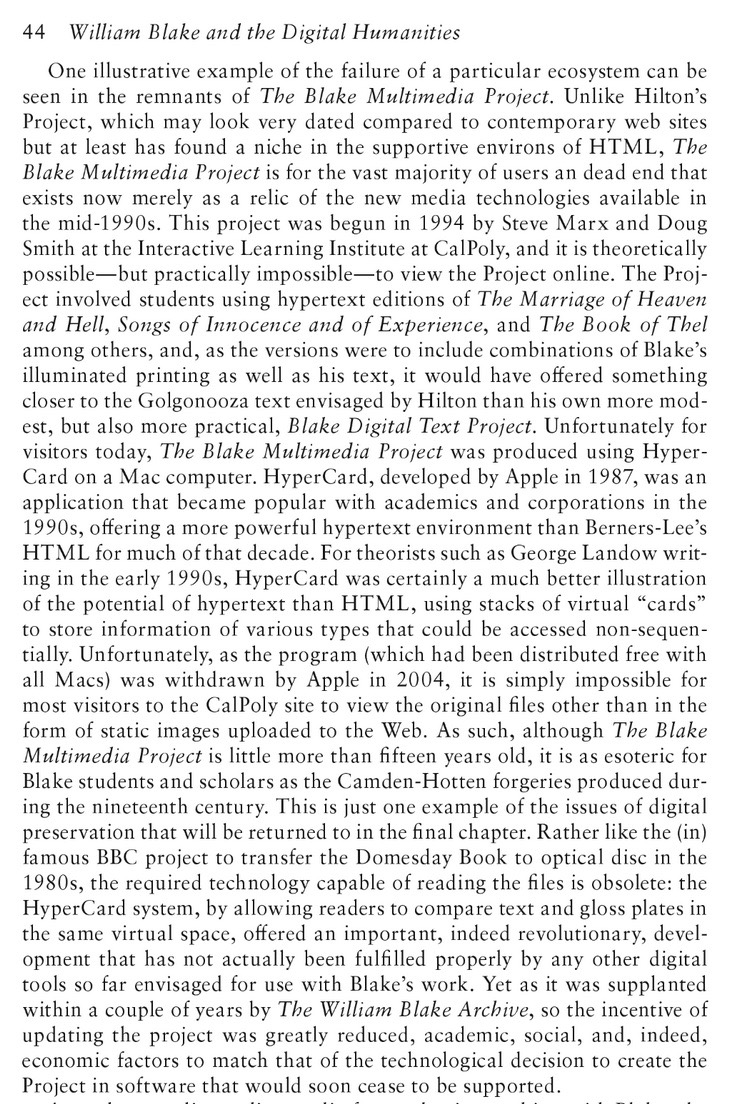
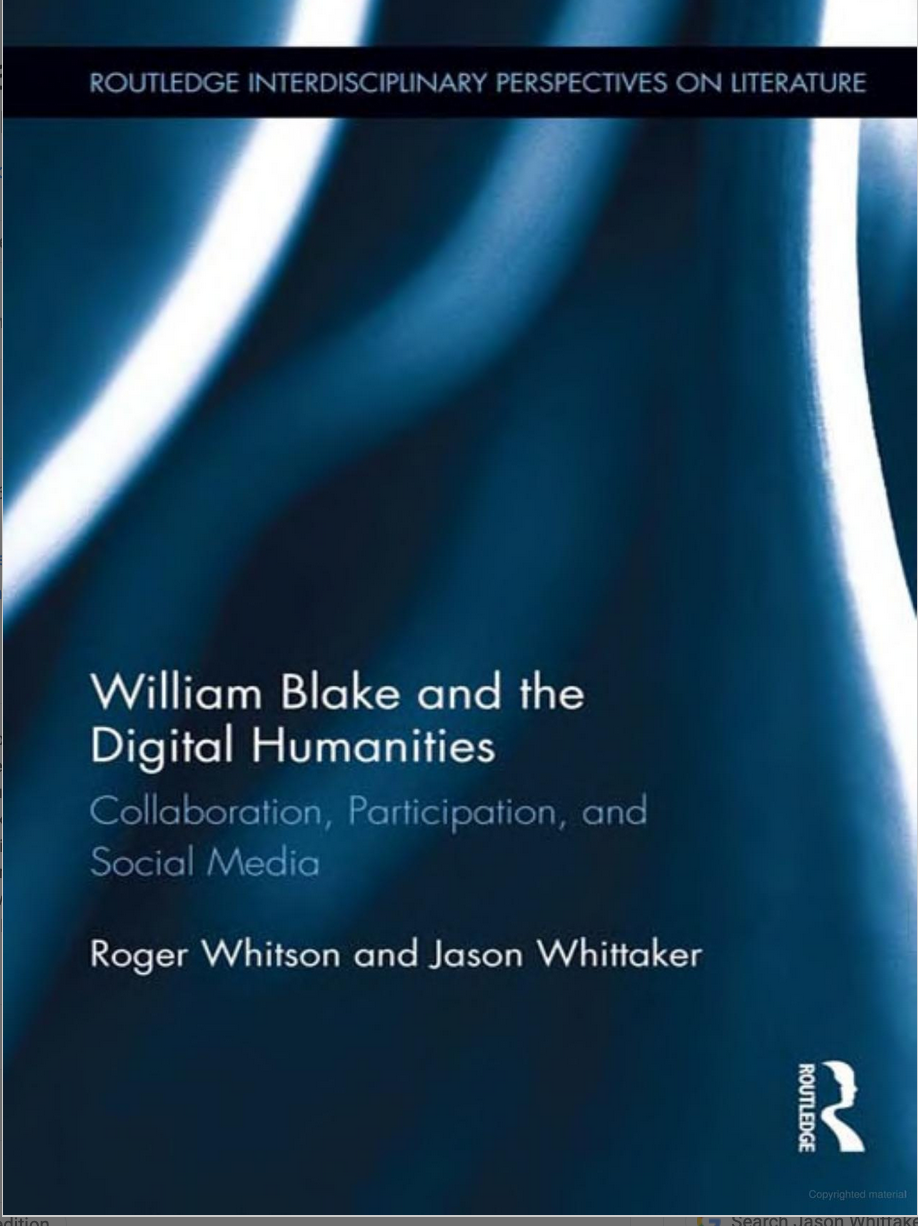


Once the phone clock signaled the end of this morning’s meditation, as always, I concluded with the Jewish prayer: “May the words of my mouth and the meditations of my heart be acceptable in your sight, O Lord, my rock and my redeemer.” After 30 minutes of effort to calm my troubled thinking, I often find a moment of relaxation in shifting register to this plea before throwing off the blanket, turning on the light and taking up the day’s work.
Today that prayer to the void was accompanied by more self-observation and a silent word: “broken.” An association swam up from below: George Herbert’s “The Broken Altar” and behind it Leonard Cohen’s “cold and broken hallelujah.” Next came the toothy jaws of a literary critic which gulped up both and smiled.
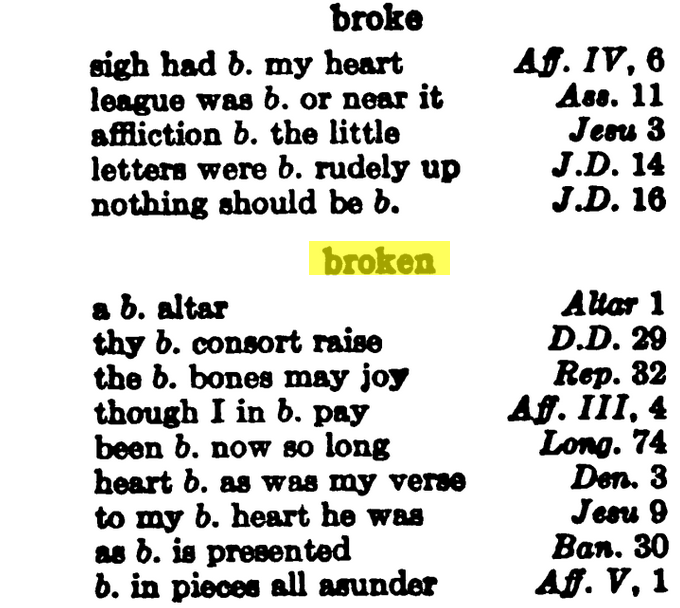
Lionel, I think of you
as an old grizzly bear
all burly and tough
but also a teddy bear
full of cuddly stuff
or as my grandfather,
all seasoned and wise
but also my grandson
full of awe and surprise
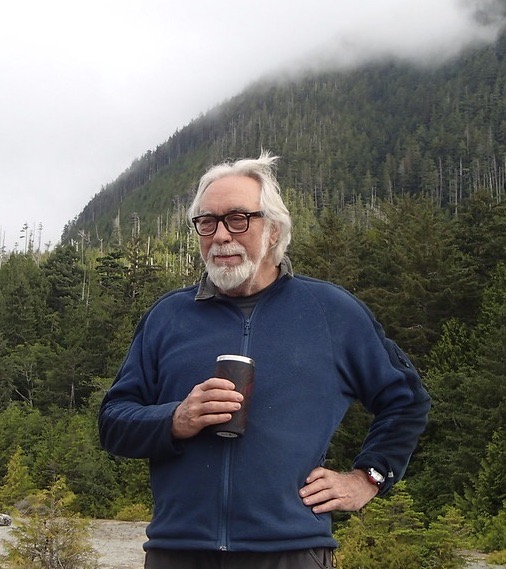
Dear Chief …
We asked to meet you to briefly discuss an encounter that I had with the SLOPD back in October 2019. I didn’t think it was serious enough to bring to your attention until events of the last few weeks started a national conversation about police policy and culture in general.
On the afternoon of October 13 Jan hosted a potluck dinner at our home at 265 Albert Drive for a group of people she’s been working with on San Luis Obispo’s time-honored youth exchange program with a school in Stuttgart Germany. After the event, around 7:00 (?) p.m. I got into my Chevy Volt and headed for City Farm SLO at 1221 Calle Joaquin, where I am the Director, to carry out my regular duty of feeding the chickens and putting them away for the night.
I remember stopping at the corner of McCollum and Grand Avenue to turn right and then suddenly feeling the bottom of the car forcefully bumping on the rocks in the median on Grand. I came to a stop, slowly pulled over to the right lane, got out, realized that the car was damaged but still driveable, and pulled ahead to Fredericks St., turned right and found a place to park, planning to walk the two blocks back home and have the car towed in the morning. Not knowing what had caused the accident, but considering that it might possibly have resulted from my thinking about the chickens or from my having had a glass of wine in the course of the afternoon, I was somewhat disoriented and eager to get back home.
As I walked up Fredericks toward the corner of Albert Drive, three SLOPD cars pulled up around me and several officers got out. They looked at my registration and insurance and took my driver’s license. I told them what happened and they escorted me up to Albert and partway up the steep hill to a driveway on the right. There they had me walk a straight line, stand on one foot and inspected my eyes with a flashlight. The tone was not hostile, but it was quite intimidating. I said nothing except to answer the questions posed. When asked whether I wanted to take a breathalyzer test, I said no. At that moment, the interrogating officer took me by the shoulders, turned me around and snapped handcuffs on my wrists behind my back. Having some shoulder arthritis, I was uncomfortable but said nothing and then was ushered into the hard low back seat of one of the police cars, still more uncomfortable, and driven to the police station on Walnut Street.
Once inside I was told that I was required to take the breathalyzer test, which I did, and then was placed in the holding cell. My phone was not taken from me, and from there I texted Jan and told her what was happening.
At first she thought I was pranking her, but when I sent a picture of the inside of the cell, she saw I was for real.
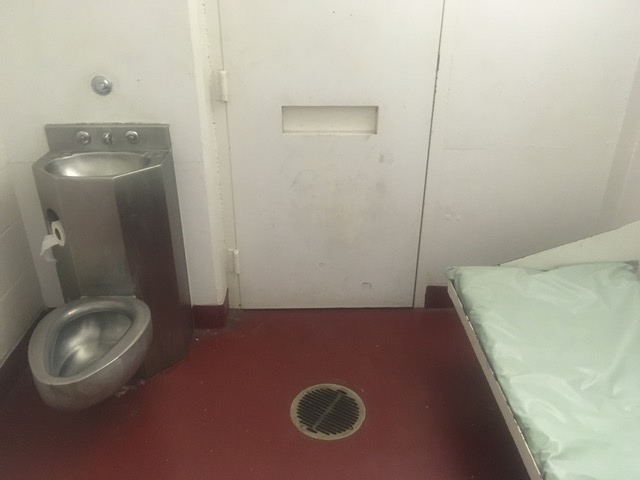
Before long, I was taken out of the cell and told by the officer that I had blown .02 and would be taken home. She explained to the other officers that she had called the watch commander who asked if I was on heart medication, which I was, and who explained that it was this that accounted for results of her eye inspection. She apologized for the inconvenience and I was then driven home.
Once I got there and discussed the situation with Jan, I realized what had happened. Between making the right turn and ending up on the median, I must have briefly blacked out. Although this was of concern, I was relieved to understand. Next morning I phoned the cardiologist, Dr. Sada, and told him of the event. He arranged for an appointment the same day. After a quick examination and looking at the monitor records following a very slight stroke I’d had in August, he concluded that I’d had a “syncope” or heartbeat irregularity that caused the blackout. He scheduled me for surgery the next day and installed a pacemaker, and I’ve had no problem since.
In retrospect I realized I was somewhat frightened during this encounter. My strongest impression, however, was if a 77 year old white man a couple of blocks from home was treated like this, what would it have been like for someone with a different profile.
However, since I never had any other negative experiences with SLOPD, was acquainted with and admired the Chief, and in fact several years ago had two amazing experiences with an officer helping us to deal with a serious family problem with our custodial grandson, I felt no need to pursue it further. But, in view of both local and national events lately, I thought bringing this to your attention could possibly reinforce the value of avoiding heavy-handed treatment of citizens whenever possible.
Sincerely,
This is supposed to be a place for tempered reflection, but events of the past couple of days have left my mind scrambled. The police murder of George Floyd in Minneapolis (which I still dont have the stomach to watch on video), the ensuing riots encompassing the country, the Minneapolis mayor’s pivot from demanding a murder indictment for the cop to mobilizing the National Guard, Trump’s oscillation from calling for shooting of looters to phoning Floyd’s family and then to threatening the use of dogs and weaponry on White House protestors, the battle between him and the CEO of his main mouthpiece, Twitter, the complete eclipse of Corona Virus news of the last three months by the perception of danger now reduced and by everyone’s having enough of lockdown, and finally, this afternoon, the glorious launch of Elon Musk’s Space-X rocket. Humans ugly and beautiful, impotent and omnipotent. No matter how much I’d like to turn away from news, the pace and magnitude of the drama keeps me captive.
I tried this morning, as I have several times this week, to avoid it by taking a long walk with the dog up horse canyon on polyland–and by working at the farm a couple of times a day. But back home, after the compulsory nap, I’m back into the NYTimes or Google news, lapping up the latest. Out in the woods I phoned Joe to try to set up a backpacking trip in Idaho as one way to break routine, now that air travel has just become permitted, but he hasnt answered the call.
After weeks of feeling grotesquely privileged by April days of growing gardens, walks on the beach, leisurely prepared meals, low anxiety about getting stuff done, luxurious entertainment by TV, music and books, against a backdrop of news offering suspense and amusement, last night and early this morning provided a brief dose of the darker reality.
A phone conversation with Peter, my younger brother stand-in, detailed his excruciating post-operative condition after successful surgery removing slow-growing tumors from his kidneys. He’s had four botched catheterizations and is now sending urine to a bag, since his urethra is blocked. This makes for continuing pain that the painkillers cant control and required an emergency trip to a urologist in Courtney from which he’d just returned after several days in a Vancouver hospital. Prognosis uncertain.
My last night brought repeated awakenings with more pain than usual in hands, shoulders, back and knees. I applied Jan’s cream, took more Tylenol, tried cannabis oil, and went back to bed exhausted after morning bath. There I half-dreamt that these were early symptoms of infection with the virus and visualized being set up in our guest room, wondering which exposure–Costco to get the Mac and Cheese for the Homeless Shelter or not wearing a mask when seeing Claire and Greg–had led to it. It was only after a third cup of coffee and two more Tylenols that I returned to a semblance of the new normal–readiness to go to the farm to carry out today’s ambitious plans for harvest and planting with Shane and Tree and meeting with Josh and Shea to measure the layout for her planned outdoor farm school.
I’ve embarked on the effort to create a digital legacy with Jake Smallwood from Fertile Minds, a protege of Dusty who got this blog started. If it can work it will cost about $400 to create a setup with wordpress that approximates the setup I had with Dreamweaver in the 20th century. Back to the future. Corresponding and speaking with them brings back memories of Dusty and grief for his loss. But also emphasizes the relevance of the project. Creating a digital legacy. Moving forward on the effort initiated with this.
A life as a project, coming further into focus as the ratio of past to future increases, or alternately, the ratio of future to past decreases.
The project enhanced by current reading a biography of Leonard Bernstein. Fascinating information in immense detail, but all of it external from interviews with his acquaintances and public records–nothing about his own perspective and inner life, since sadly the authoritative author was denied access to the vast archive in his estate by the executors.
The blog form–a dynamic record, allowing for the additions of data created by an ongoing life and of changing of perspective provided by reconsideration of old snapshots, combining immediacy and distance.
We follow the Idaho Mountain Express online to maintain indirect contact with Joe and his family who are sheltering at home in the middle of the highest per capita infection rate location in the country. The news there doesn’t tell us much about what’s really going on and neither do his reports but Jan came up with a long article in Buzzfeed, a national outlet, that gave us a fuller picture–both about the course of the spread and through a number of interviews with rich and poor victims, about the range of human impacts. This quote stayed with me and dominated my morning quiet time in the bathtub and while meditating:
The infectious disease doc came in and said, “You have COVID, and I don’t think you’re going to survive, because you only have 61% of your lung capacity.” They asked him, “Do you still want to have this DNR [do-not-resuscitate order]?” He said yes. “Do you want to be put on a ventilator if needed?” He said yes.
Meanwhile, my dad was gradually improving. He said it was so hard to be alone, with the only people he came into contact with wearing full protective gear. He said it felt like they were scared of him. But he’s a tough cookie. He couldn’t get out of bed or go to the bathroom for nine days, but when they let him out, he took a shower, and came home — that was March 29 — and surprised everyone on the family Zoom call. It was my parents’ 51st anniversary. My mom was just totally taken aback and so happy.
My most persistent concern over the last several years has been the dual business of departure and legacy. The “Better End” talk I wrote for the Sangha and the updating of our estate and advance directive documents last year addressed the first. The effort I’ve put in to scanning photographs and retroactive updating of my blog with uncatalogued writings and documents address the second. But both tasks are far from finished, the opposite of the kind of closure they intend. The ongoing Pandemic adds to my age and health status to make completing them more urgent, and the lockdown should provide the opportunity to get it higher on my list of priorities, but so far that urgency has issued only in procrastination pressure rather than action.
The questions, answers, and subsequent outcome of the old man in the Buzzfeed article captures my confusion about the advance directive. At the moment of actual decision he reaffirmed his DNR, but rather than abjuring any heroic artificial lifesaving efforts, as included in my directive, he asked for the ventilator, which then saved his life and brought happiness to his family. This goes against the news that I read lately indicating that those embattled ventilators have the desired effect only in a small proportion of cases. When writing the directive, I didn’t envision Covid 19, but rather something like a stroke or heart attack after which any recovery would only prolong infirmity. But since then I’ve been diagnosed with coronary heart disease, suffered a (tiny) stroke and a syncope and agreed to the installation of a pacemaker. And life is good. So if I become infected how will I answer those questions?
It took the initiative and planning by Jan and the enthusiasm of Claire, the two shikses in the family, to overcome my reluctance and that of Claire’s partner Gregg Loberstein, and make this wonderful celebration go forward. Also onscreen are Gregg’s son Michael and Claire’s son Lucas.
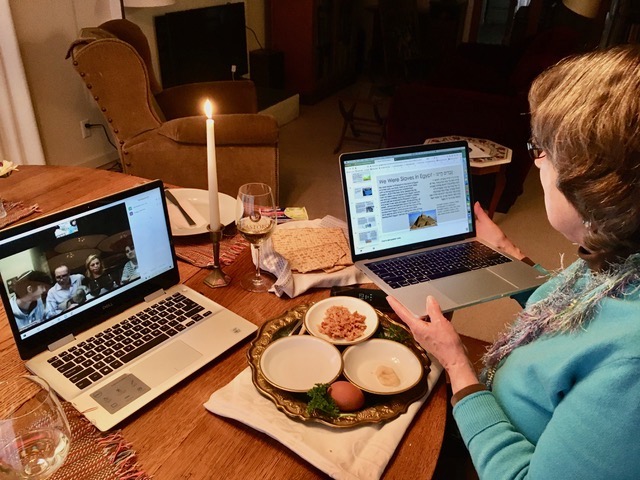
I’ve been taking heart from Leonard Bernstein’s Chichester Psalms: https://www.youtube.com/watch?v=zEBfay9FUgE
“The Economy” is supposed to provide a matrix of relative rationality and predictability for the relations among human individuals and the billions of their fellows that make up civilization. It’s also supposed to govern the hundreds of specific choices each of us makes daily—shop at Costco or Whole Foods, get the conventional bananas or the organic ones, work hard in school to qualify for a good job. It provided the success narrative for my parents’ achievement of the American Dream through hard work and thrift, starting with no money as refugees from the Nazis in 1937 and ending with their substantial bequest to us upon my mother’s death in 2003.
Having grown up sheltered by their steady progress, financial security never seemed urgent for me, and having my adult values largely formed as a high-achieving student at an Ivy League university where concern for money was considered plebian, I got more gratification from giving stuff away than from acquisition. That attitude was part of what led me to attempt to live off the land in a Thoreauvian “economy” in patrician poverty. A couple of years of mortgage anxiety and mill work brought me around to a craving for any job that could generate a steady income. When that finally arrived in my forty fourth year with a tenured position as professor and civil servant at a state university, I again lost interest in money. When the inheritance from my parents came through, my inclination was to donate it all to charity. But I was dissuaded by my wife.
Her attitudes about money always diverged from mine. The daughter of a banker, she was interested in me as a good prospect when we first met—PhD candidate at Stanford with secure academic career ahead. After several decades of disappointment of that expectation, she went to law school, passed the bar, and started her own law firm dealing with business law, employment law, trusts and estates, whereby success and failure was all about economy.
Despite being able to purchase whatever we wanted—new cars, real estate, a therapeutic private school stint for our daughter, international travel, and tithing for charity—our assets grew. We still maintained habits of relative thrift—drinking cheap wine, sleeping in Motel 6 on the road. Jan spent a good deal of time managing the portfolio.
The expansion of our wealth made me uncomfortable, especially in light of the attrition of the middle class and the growing gulf between rich and poor, making us part of the hated one percent. Habits of thrift seemed absurd unless the money saved was being put to meaningful use. I looked at our investments only once a year while preparing reports for our tax accountant and calculating our tithe.
In November 2019, I discovered that in the course of one year their value had ballooned by 25%, largely due to the influence of the despised Trump administration. I hunched it would soon drop. The moral thing would be to liquidate the ill-gotten gains now and turn them over to charity and righteous political causes. The practical thing to do would be to turn them into cash and spend as much as possible on things with tangible value.
The latter is what we chose. We purchased a new mobile home for our daughter, bought two electric vehicles and a Powerwall, donated to the Community Foundation for City Farm SLO and left enough to cover what we expected would be a large tax liability from the profit taking.
By the end of January after our accountant filled out the returns, it turned out that we were getting $18,000 in refunds. Most of the securities Jan had selected to sell were losers over time and the rebates on the car and Powerwall as well as the charitable contributions made for yet more credits.
Three months later, as the Pandemic has eclipsed all other concerns, personal and public, the significance of our economic windfalls keeps shifting. The stock market continues reeling from the assault of the plague. The hyper economy that tied together the whole world in a feverish gold rush sickening ecosystems and climate and draining wealth from the poor and funneling it to the rich, seems to be falling apart. The majorities living paycheck to paycheck in tight quarters can’t possibly maintain social distance or shelter at home, while we are encouraged to exercise generosity by ordering takeout meals from favorite restaurants. The government’s decision to print and hand out trillions of dollars to everyone may either start limiting the damage we’ve been causing for the last fifty years or may simply accelerate collapse.